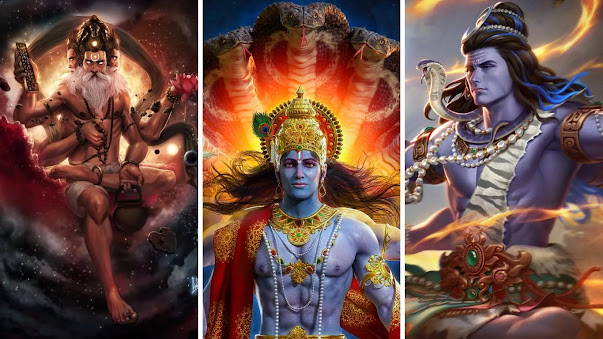The 330,000,001th god of Hinduism

Here in India, we have many to choose from, so you can have a god focussed on your every specific need. You can even believe in a small gang of gods—for example, one for business, one for some money, one for knowledge and one for, say, flat tires.
The Hindu pantheon has, believe it or not, 330 million gods, enumerated no doubt by some assiduous Vedic intern back when India ruled the world. We’ve got a god for everything. We’re top of the heap when it comes to gods. But as my luck would have it, I could not find a suitable god for my purposes.
One of the great things about Hinduism is that you can make up gods precisely tailored to your needs. You can declare someone to be a god, and that’s all it takes. Aap doctor nahin, aap bhagwan hain. Some people, like Asaram Babu or some Yogi, can even declare themselves to be gods and that’s okay too. Hinduism is very tolerant of diversity.
There’s a god for every occasion. Pushan is the god for marriages, journeys, roads, and the feeding of cattle. The goddess Vac names things and makes it possible for friends to recognise each other.
Manasa looks after snakes and snakebites, and Sarama is all about dogs. My favourite is the little-known younger brother of Ganesha, known as Skanda. He is the god of thieves, though he has several other portfolios.
It’s not very different from Christians having patron saints for everything. For example, Jesus Malverde is the patron saint of hard drugs, and revered by drug cartels.
I once went to Mehndipur, a temple town near Jaipur, to pay my respects to the god Balaji. He’s in charge of exorcisms. Lots of possessed people in Mehndipur.
A Pew survey found that among Hindus, the most popular god by far is Shiva the destroyer (44 per cent). About a third of Hindus are devotees of Hanuman (35 per cent)- symbol of strength and loyalty, and Ganesha, remover of obstacles. South India has its own preferences: Murugan (14 per cent of South Hindus), Ayyappa (13 per cent) and Meenakshi (7 per cent).
My own personal god, who would be the 330-million-and-one-th listed Hindu deity, goes by Pangajhooteshwar Maharaj. I understand he is already worshipped by tens of thousands of Indians, though many are yet to realise it. Pangaji temples will soon be a common sight.
Of course, the question on everyone’s minds is: do some gods and goddesses like to drink? Since there is a god for pretty much everything, you’d expect one to be dedicated to hooch. Well, Varuni, daughter of the god Varuna, is the sommelier of the Hindu pantheon, in charge of the bar. Some Indian gods didn’t mind a peg or two on occasion.
Which makes it all the more perplexing why everyone has their knickers in a twist because Bengali MP Mahua Mitra spoke of Kali, Bengal’s revered goddess of destruction, as being “meat-eating and alcohol-accepting”. Apparently, this was heresy. The party which lost the elections in Bengal immediately filed police complaints that the MP had “hurt religious sentiments”.
Does Kali actually like the stuff or not?
According to Indologist Manab Chatterjee, the ritual use of booze in Kali-worship has been mentioned in the Niruttara Tantra, a religious sect. Another scholar, Purba Sengupta, says liquor, signifying strong emotions, is essential to the worship of a goddess who symbolises shakti (power) and destruction, and is consumed as prasad after being offered to the deity.
You don’t have to go as far as Bengal. Right there at the doorstep of the BJP government in Delhi is the Bhairavnath Temple, near Pragati Maidan’s Gate number 1. Said to be nearly 2,000 years old, its main deity is Bhairo Baba, a demon killed by the goddess Durga, another name of Kali. Bhairo Baba only accepts liquor as an offering. His bhakts then get high on the prasad.
What, you might wonder, does my god Pangajhooteshwar protect? In India, he protects the right to take pangas, or take and give offence. He also guarantees every Indian’s right to make up half-truths and even outright lies and post them on WhatsApp or Facebook.
Pangajhooteshwar is a new god for a new and shining India. He is easily offended so you have to watch what you say to him. He loves nothing more than taking pangas over some imagined slight, and boy, does he imagine slights. He preaches sobriety and vegetarianism but once the sun sets, all bets are off.
Pangaji protects your constitutional right to make a big fuss about nothing. He is particularly fond of righteous moral indignation and much ado over trivial issues. For those who do this successfully, Pangaji promises eternal government, outrage wherever you look and a nation of people who really don’t like anyone who’s not like them.

Post a Comment
Please do not enter any SPAM link in comment box.